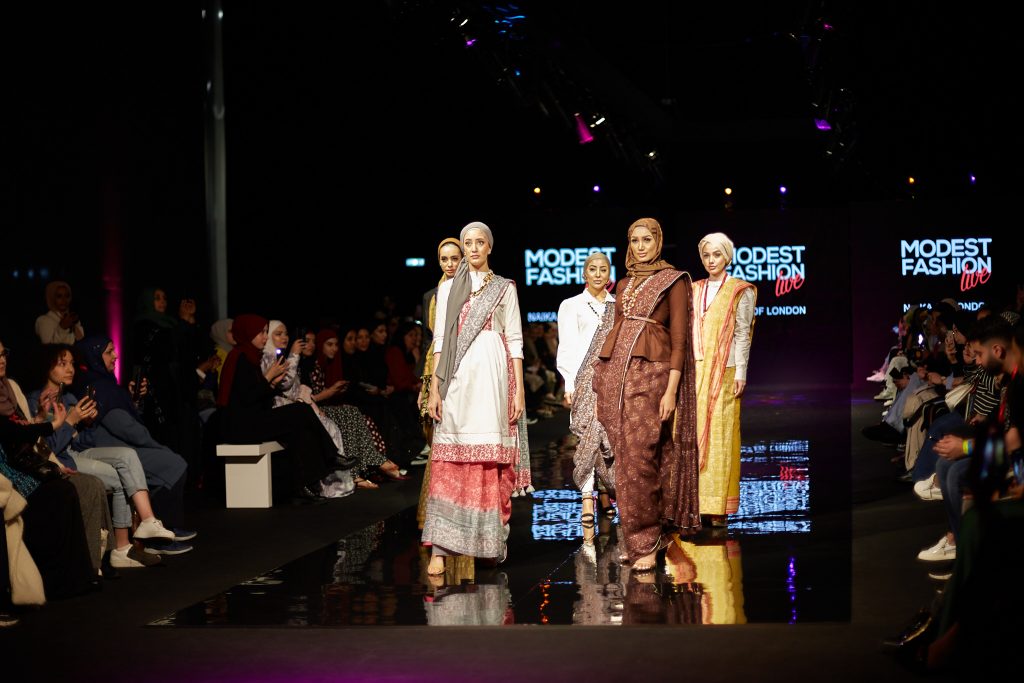
“I’ve always seen events as a way to break down social barriers,” says the man behind the London Muslim Lifestyle Show, Waleed Jahangir.
Last year, Jahangir launched the inaugural edition of the London Muslim Lifestyle Show at Olympia London, to the interest of both the exhibition industry and the global business community.
“At our first show, we had 32 per cent international exhibitors, and this year we’ve got 42 per cent,” he explains. “There’s a huge economy there, and there’s an emerging market that I wanted to put on a platform, and represent in a formal manner.”
As Jahangir points out, Muslim businesses around the world (“Known collectively as the Halal Economy”) are a huge and often untapped market, as is the Muslim consumer, with more than 60 per cent of Muslims worldwide under 30 years old.
“Today’s generation, the Millennial Muslim, is as British as it gets,” says Jahangir. “We’re spending our money here, our taxes are here, our incomes are here and our expenditure is here, and that is going to grow exponentially over the next few years.
“Gone are the days when Asian-run businesses were corner shops, sending money back home or putting it under the mattress.”
The London Muslim Lifestyle Show is part consumer and part trade, welcoming consumer visitors – especially families – alongside some of the world’s most prominent Muslim and non-Muslim business people.
“It might be called the London Muslim Lifestyle Show, but the word Muslim signifies the community more than the religion,” he continues. “When you come to the event, there’s no religious aspect in your face; it’s all the cultural aspects and all the positive sides of Muslims.
“A non-Muslim can turn up and experience real Muslim culture. We’re trying to create an inclusive platform.”
Before the show launched, Jahangir and his colleagues analysed their potential market, splitting it into sectors such as food, finance, fashion, pharmaceuticals and media.
“It’s basically the Asian version of the Ideal Home Show,” he laughs. “We’ve got an auditorium with live entertainment throughout the day. We’ve got four fashion shows a day.
“My main aim is to use the event as a vehicle to grow the Halal Economy, and to be a gateway in London for trade and investment for other countries around the world.”
Post-Brexit, adds Jahangir, it’s important for the UK to have more trade and investment with counties outside of the European Union, and many of the most powerful countries are predominantly Muslim.
In light of Brexit, and events across the pond, does Jahangir feel under pressure to project a positive image for the Muslim community?
“I do get nervous about the press and the media,” he admits. “My worry is someone doing something silly at the show, or even just someone taking a picture and twisting it.
“Unfortunately something negative is more palatable for the readership of many of these outlets.”
The show also suffers from the attention of far right and nationalist groups, both online and in person at the event.
“We get a lot of abuse on Facebook,” he explains. “Some of it’s quite funny. It’s things like, ‘What do you sell, backpacks?’ We also get a lot of threats before the event, from nationalist parties saying they’ll come down to the event or try and stop it.
“In a funny way, I want them to turn up, because then we’ll get on the news! All that’s going to happen is that they’ll turn up for five minutes, I’ll call the police, the police will take them away and I’ll have press coverage. My office thinks I’m mad.”
Looking to the future, Jahangir intends to keep growing and diversifying the event. With the Muslim economy growing and diversifying itself, it would be a shame to deprive businesses of their new platform.
“I tell my salespeople that we don’t sell stands, we develop relationships,” he says. “You have to think long term. For the whole economy to grow, you need to support the grassroots businesses, fertilise them, incubate them and give them the support that they need. Don’t isolate them.”



